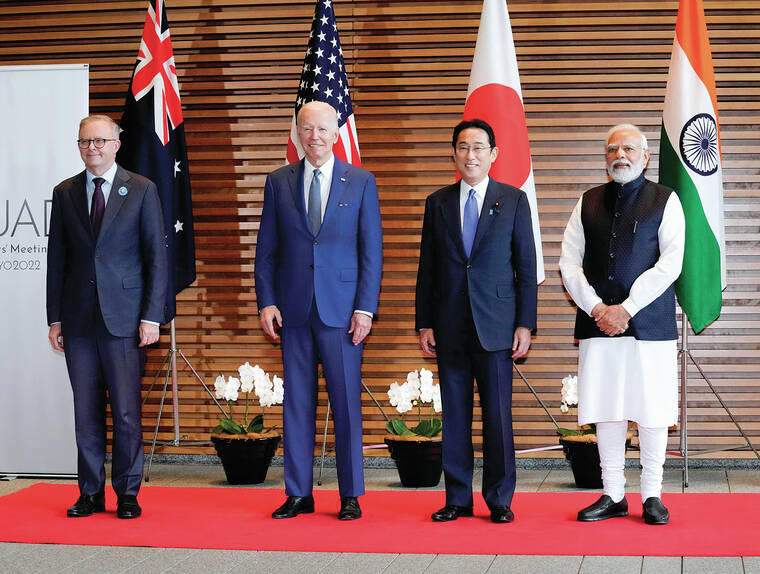Biden launches Indo-Pacific trade deal, warns over inflation
TOKYO — President Joe Biden launched a new trade deal with 12 Indo-Pacific nations Monday aimed at strengthening their economies as he warned Americans worried about high inflation that it is “going to be a haul” before they feel relief. The president said he does not believe an economic recession is inevitable in the U.S.
Biden, speaking at a news conference after holding talks with Japan’s Prime Minister Fumio Kishida, acknowledged the U.S. economy has “problems” but said they were “less consequential than the rest of the world has.”
ADVERTISING
He added: “This is going to be a haul. This is going to take some time.” In answer to a question, he rejected the idea a recession in the U.S. is inevitable.
His comments came just before Biden’s launch of the Indo-Pacific Economic Framework. His administration says the trade deal is designed to signal U.S. dedication to the contested economic sphere and to address the need for stability in commerce after disruptions caused by the pandemic and Russia’s invasion of Ukraine.
Nations joining the U.S. in the pact are: Australia, Brunei, India, Indonesia, Japan, South Korea, Malaysia, New Zealand, the Philippines, Singapore, Thailand and Vietnam. Along with the United States, they represent 40% of world GDP.
The countries said in a joint statement that the pact will help them collectively “prepare our economies for the future” after the fallout from the pandemic and the war in Ukraine.
Biden and Kishida were joined for the launch event by Indian Prime Minister Narendra Modi, while representatives from the other countries appeared by video. Modi was in Tokyo for Tuesday’s meeting of the Quad, a four-country security group that also includes the U.S., Japan and Australia.
The White House said the framework will help the United States and Asian economies work more closely on issues including supply chains, digital trade, clean energy, worker protections and anticorruption efforts. The details still need to be negotiated among the member countries, making it difficult for the administration to say how this agreement would fulfill the promise of helping U.S. workers and businesses while also meeting global needs.
Critics say the framework has gaping shortcomings. It doesn’t offer incentives to prospective partners by lowering tariffs or provide signatories with greater access to U.S. markets. Those limitations may not make the U.S. framework an attractive alternative to the Trans-Pacific Partnership, which moved forward without the U.S. after former President Donald Trump pulled out. China, the largest trading partner for many in the region, is also seeking to join TPP.


